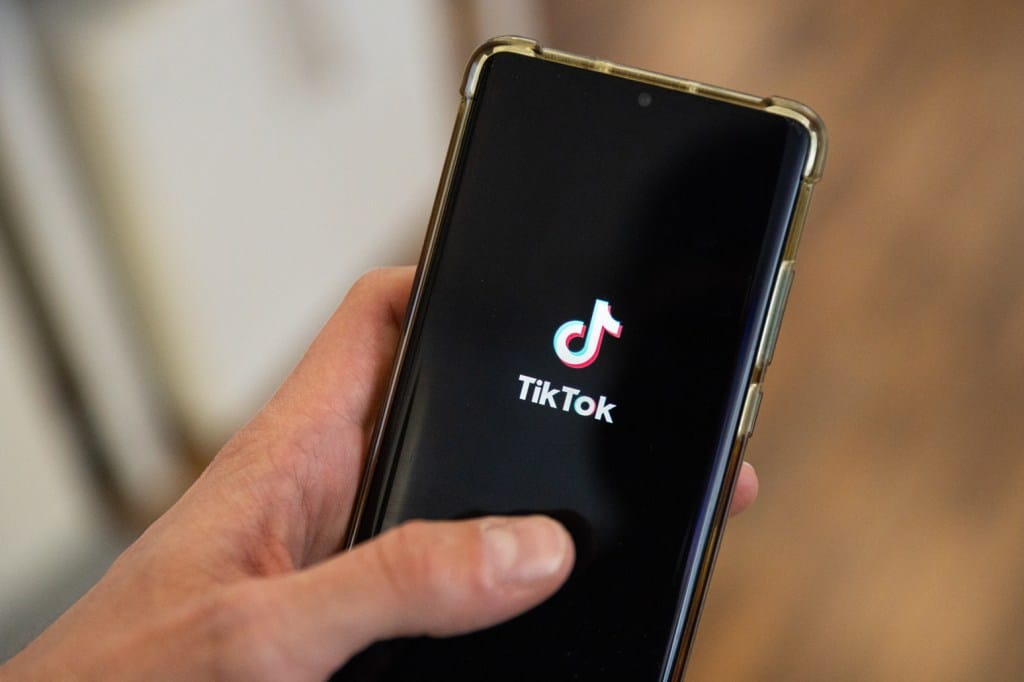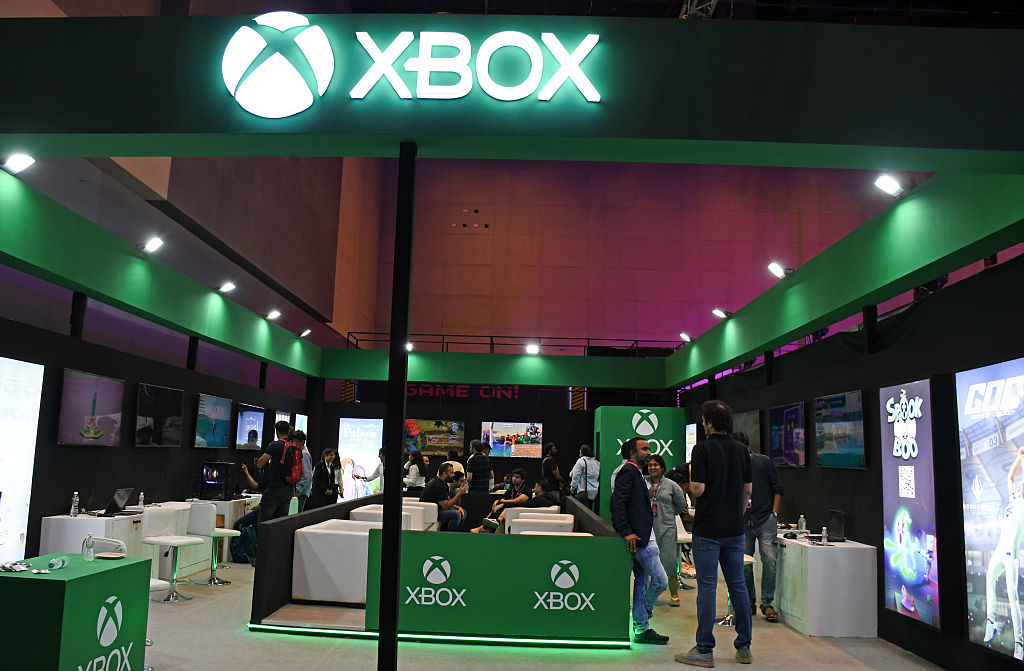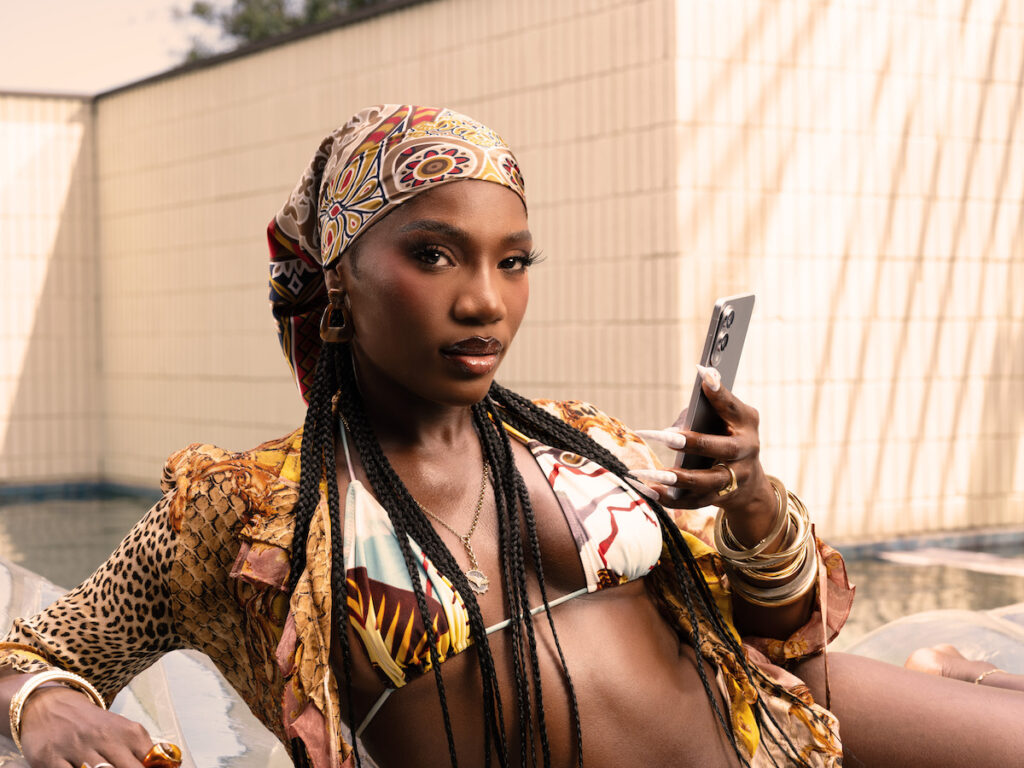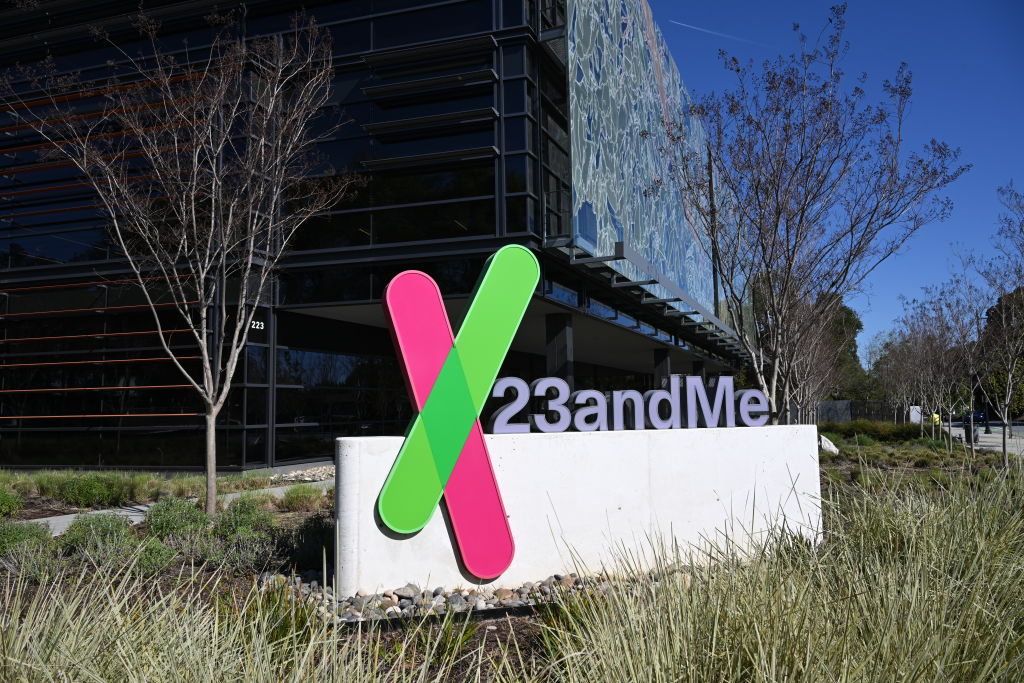tech
Page: 9
TikTok launched a new tool on Tuesday (June 3) to help artists understand the way their music percolates through the app’s ecosystem. TikTok for Artists will provide acts with daily information about how their songs are used and which tracks are driving the most engagement. On top of that, the dashboard furnishes artists with information […]
SOPA Images / Xbox
For those eager to get their hands on an Xbox dedicated handheld device, you’ll have to wait a bit longer.
Xbox chief Phil Spencer hasn’t been tight-lipped about the long-rumored Xbox handheld, speaking about the device as far back as 2017 when he claimed that Microsoft had “roughly designed” one in the past, while bringing up the device in numerous discussions that hint at its continued development.
Windows Central then threw more fuel on the fire when it reported on Microsoft’s strategy, which will see the company not only team up with a third-party on an Xbox-branded portable PC codenamed “Kennan” but also continue to work on its device, launching alongside the successor to the Xbox Series X/S in 2027.
Now, the website reports that Microsoft has “sidelined” the device as part of a strategy shift.
Per Eurogamer:
Now, though, Windows Central claims Microsoft has had a bit of a strategic rethink, and development of its own handheld device has been “sidelined”. According to the publication’s source, the company has internally announced it’ll instead “prioritise its teams to improve Windows 11 gaming performance, specifically for devices like the ASUS partner device Project Kennan” (NB. the site originally reported this under the name “Keenan” back in March, but has since updated its original story). It doesn’t sound like Microsoft is completely abandoning its own handheld plans, however; Windows Central says the company “still has big ambitions and is investing heavily to deliver a native Xbox handheld”, but third-party devices and Windows 11 improvements will be where it focuses its resources for now.
Project Kenna Is Still Coming
Windows Central reports that Project Kennan is “essentially finished” in terms of hardware, with the software component receiving a “significantly boosted effort” from Microsoft’s Xbox and Windows teams to “improve the experience on the software side.”
The plan to launch the Xbox-branded ASUS device sometime “later this year” is still on the table.
HipHopWired Featured Video
PlayStation / Sony / PS5 Pro
While the stench of price hikes still lingers thanks to Donald Trump’s rampant abuse of tariffs, Sony felt it was only right to bless gamers with some much-needed discounts on its PS5 consoles, and yes, the PS5 Pro is included.
Word on the video game streets is that the PS5 will eventually get a price hike, but as of now, it’s getting a price cut.
Yup, you read that right.
Right now and through June 11, if you have been on the fence regarding copping a PS5 console, now is a better time than ever to make that purchase.
Select PS5 bundles, including the PS5 Pro, PlayStation VR 2 headset, and other hardware, are on sale as part of PlayStation’s Days of Play sale event.
With the Nintendo Switch 2 on the horizon, coming in at $449.99, you can cop a Call of Duty: Black Ops 6 PS5 Bundle for $50 less at $399.99 from Sony or Walmart.
The PS5 Pro Gets A Surprise Price Cut
What about if you were one of those gamers reluctant to buy the PS5 Pro because of the price? You can now purchase one of the most powerful video game consoles on the market for $649.99, which is $50 less than its original asking price, offering a great opportunity to snag the console.
The PS5 Pro is currently the more powerful option than the current PS5 model, boasting a larger GPU, more storage, and the ability to utilize Sony’s own PSSR AI upscaling technology.
But don’t get it twisted, the base PS5 model is no slouch, we all saw that latest Grand Theft Auto 6 trailer that made sure to let us know that all footage from the game shown was it running on a PS5 console, confirming even without the Pro designation it can still handle what will easily be one of the most graphically demanding titles of this console generation.
Those aren’t the only deals, you can head here to scoop up a PlayStation VR 2 headset or bundle, PS5 DualSense Edge controller, standard DualSense Edge, PlayStation Pulse Explore wireless earbuds, plus tons of games at a discounted price as well.
HipHopWired Featured Video
Samsung / Doechii / Galaxy S25 Edge
Samsung’s #TeamGalaxy can now boast that it has a Grammy Award-winning artist on the squad.
Doechii has chosen a side and is rocking the latest addition to Samsung’s popular Galaxy smartphone lineup, the S25 Edge.
The superstar officially switched sides due to “her and the brand’s shared values — both innovators pushing boundaries in music and technology,” Samsung announced in a press release.
The “Denial Is A River” crafter announced her partnership with the Korean smartphone giant with a new ad featuring herself and her albino alligator, Coconut, in which they decide to take a “light day” instead of heading to a photoshoot, rehearsal, and a recording session.
At the same time, Doechii uses her new “light phone,” powered by Galaxy AI, to document her day off and take photos of the real muse, Coco.
When we say “light phone,” we mean the new slim Galaxy S25 Edge, which the genre-bending artist puts to good use as she takes us on a “light day,” with her exotic pet.
But that’s not all. To celebrate their new partnership, Doechii will also host an exclusive event in New York City called “Live on The Edge,” where she will deliver an electrifying performance at The Edge in Hudson Yards on May 30.
For those who are not in New York City and cannot attend in person, don’t worry – you can tune in to the global livestream, beginning at 8 pm on May 30, on Samsung’s YouTube channel.
As for the Galaxy S25 Edge, it is officially available for pre-order now and will go on sale on May 30, priced at $1,099.
HipHopWired Featured Video
Source: EA/ Cliffhanger Games / Black Panther
That Black Panther standalone we were all excited for is no longer happening.
IGN broke the news that EA has taken away Cliffhanger Games’ heart-shaped herb and has cancelled one of the games Marvel fans have been eagerly anticipating since it was first announced back in July 2023.
According to the website, EA Entertainment President Laura Miele stated in an email that the recent changes, cancellations, and other moves were aimed at “sharpening our focus and putting our creative energy behind the most significant growth opportunities.”
The bad news for the gaming industry doesn’t stop there, EA is also laying off an unspecified number of workers on both mobile and central teams. IGN reports that EA declined to comment on the specific number but believes, while not confirming that the number is less than the roughly 300 employees let go last month across Respawn and EA’s Fan Care teams.
“These decisions are hard,” said Miele. “They affect people we’ve worked with, learned from, and shared real moments with. We’re doing everything we can to support them — including finding opportunities within EA, where we’ve had success helping people land in new roles.”
Gamers Are Sad About Black Panther’s Cancellation & Layoffs At EA
As you can imagine, the gaming community isn’t taking this news very well.
“You’ve got to be fucking kidding me. First Wonder Woman (a female led game) gets cancelled and now Black Panther (a poc led game) gets cancelled, and neither of them ever had a video game before. This really is Trvmp’s America…” one post on X, formerly Twitter, read.
“more layoffs as the Black Panther game cancelled and the studio closed it keeps getting worse :(,” Kinda Funny and GamerTag Radio’s Parris Lilly said.
While we are not getting the Black Panther game, EA says it is still committed to bringing us that Iron Man game currently being developed by Motive, and will focus on Battlefield, The Sims, Skate, and Apex Legends.
What a sad time to be a gamer and Marvel fan, just saying.
The video game streets are still talking; you can see those reactions below.
1. These people are straight up losers
4. We strongly disagree
HipHopWired Featured Video
CLOSE
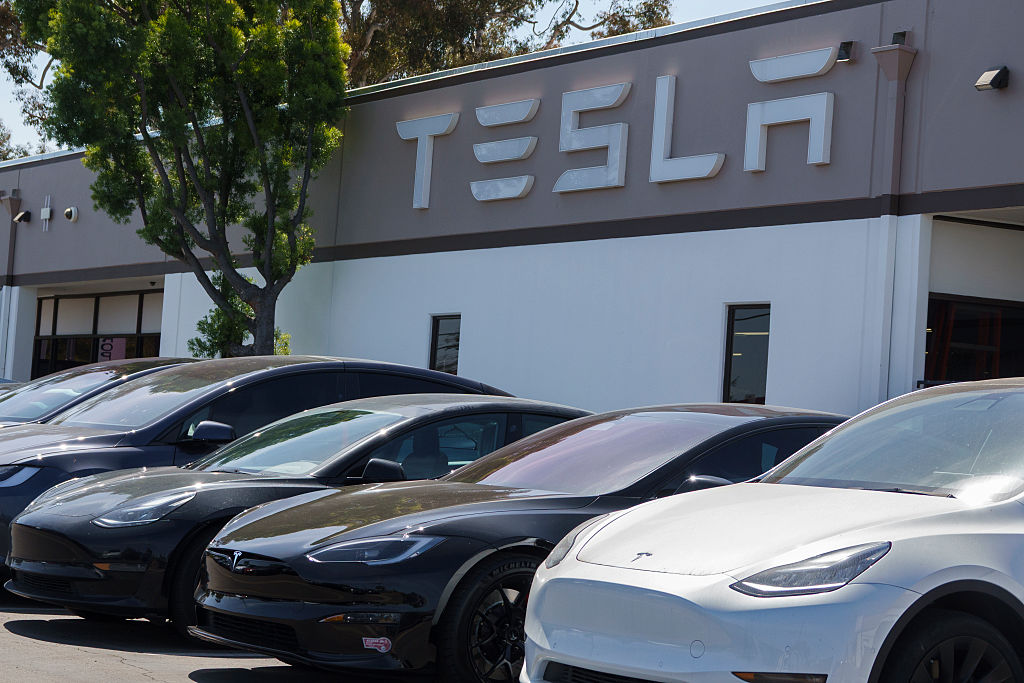
Source: Kevin Carter / Getty / Tesla / Elon Musk
Going Dark MAGA and meddling with global politics isn’t good for business. Elon Musk can attest to that, as Tesla sales continue to slump not just in the United States, but also in Europe.
Spotted on The Verge, Tesla as a company is taking a tremendous hit in the European car sales market, and Elon Musk can look no further than himself as the reason.
According to data from the European Automobile Manufacturers Association, Tesla is experiencing a significant decline in sales in Europe, with figures for the EU, UK, and European Free Trade Association falling 49 percent year-over-year in April, while sales of battery electric vehicles rose.
The EAMA reports that Tesla registered only 7,261 new vehicle registrations in April, a steep decline from the previous year, which is concerning for those in Tesla corporate or as an investor, given that the company has just launched an updated Tesla Model Y, one of the more popular models globally. It has also flopped, failing to lure in more customers.
The website reports that all of the company’s current misfortunes can be linked back to numerous factors, including Elon Musk’s decision to align with Donald Trump, his unsuccessful DOGE efforts, his involvement in global affairs, and more.
Per The Verge:
Despite Musk’s optimistic talk about the Model Y’s sales prospects, Tesla’s brand crisis appears to be deepening. And it’s not because European consumers are souring on electric vehicles; in the first four months of 2025, new battery-electric car sales grew by 26.4 percent, to 558,262 units, capturing 15.3 percent of the total EU market share.
Tesla’s falling fortunes can be chalked up to several factors, including rising competition from domestic manufacturers and Chinese rivals, and Musk’s efforts to slash federal spending for the Trump administration as part of DOGE, or the Department of Government Efficiency. Musk’s political meddling in the EU, where he came out in support of Germany’s far-right party ahead of that country’s elections, appears to have done Tesla few favors as well.
The latest financial woes for Tesla come after Musk claimed that he would be taking a step back from politics to focus more on the business, but will somehow stay involved with the Trump presidency throughout Felon 47’s current term.
While Musk’s popularity among Democrats and Liberals was in the toilet due to his glazing of Donald Trump and embracing MAGA, the Republicans who were fans of the billionaire have also gone sour on him.
A Reuters/Ipsos Poll revealed that 58 percent of respondents held an unfavorable view of Musk, compared to 39 percent who viewed him favorably.
Musk’s business woes are currently being celebrated on his platform, X formerly Twitter, which he allegedly sold to xAI.
You can see those reactions in the gallery below.
HipHopWired Featured Video
CLOSE
Country music star Martina McBride headed to Capitol Hill on Wednesday (May 21) to speak out in support of the NO FAKES Act, arguing the legislation is necessary to protect artists in the AI age.
If passed, the bill (officially titled the Nurture Originals, Foster Art and Keep Entertainment Safe Act), which was recently reintroduced to the U.S. House of Representatives and the U.S. Senate, would create a federal protection against unauthorized deepfakes of one’s name, image, likeness or voice for the first time. It is widely supported by the music industry, the film industry and other groups.
Just prior to McBride’s testimony, the Human Artistry Campaign sent out a press release stating that 393 artists have signed on in support of the NO FAKES Act, including Cardi B, Randy Travis, Mary J. Blige and the Dave Matthews Band.
Trending on Billboard
In her testimony to the U.S. Senate Judiciary Subcommittee on Privacy, Technology and the Law, McBride called unauthorized deepfakes “just terrifying” and added, “I’m pleading with you to give me the tools to stop that kind of betrayal.” She continued that passing the NO FAKES Act could “set America on the right course to develop the world’s best AI while preserving the sacred qualities that make our country so special: authenticity, integrity, humanity and our endlessly inspiring spirit…I urge you to pass this bill now.”
McBride went on to express the challenges that musicians face as unauthorized AI deepfakes proliferate online. “I worked so hard to establish trust with my fans,” she said. “They know when I say something, they can believe it… I don’t know how I can stress enough how [much unauthorized deepfakes] can impact the careers [of] artists.”
During her testimony, the singer-songwriter pointed to more specific concerns, like what can happen to individuals after they pass away. “Far into the future after I’m gone,” she said, there is the threat now that someone could “creat[e] a piece of music or [a video of] me saying something that I never did.” She added that this issue is especially challenging for emerging musicians: “I think for younger artists, to be new, and to have to set up what you stand for and who you are as a person as an artist and what you endorse what you believe in…on top of having to navigate this… is devastating.”
Suzana Carlos, head of music policy for YouTube, also expressed her company’s support for the NO FAKES Act during the hearing. “As technology evolves, we must collectively ensure that it is used responsibly, including when it comes to protecting our creators and viewers,” she said. “Platforms have a responsibility to address the challenges posed by AI-generated content, and Google and YouTube staff [is] ready to apply our expertise to help tackle them on our services and across the digital ecosystem. We know that a practical regulatory framework addressing digital replicas is critical.”
Carlos noted how one’s name, image, likeness and voice (also known as “publicity rights” or “rights of publicity”) is only currently protected on a state-by-state basis, creating a “patchwork of inconsistent legal frameworks.” She noted that YouTube would like to “streamline global operations for platforms.”
Mitch Glazier, CEO/president of the Recording Industry Association of America (RIAA), which has served a strong role in pushing the NO FAKES Act forward, added during his testimony that time is of the essence to pass this bill. “I think there’s a very small window, and an unusual window, for Congress to get ahead of what is happening before it becomes irreparable,” he said.
Also during the hearing, Senator Amy Klobuchar (D-MN) brought up concerns about a “10-year moratorium” that would ban states and localities from implementing AI regulation — a clause the Republican-led House of Representatives baked into the Republicans’ so-called “big beautiful” tax bill last week. “I’m very concerned, having spent years trying to pass some of these things,” Klobuchar said. “If you just put a moratorium [on]…the ELVIS law [a new Tennessee state law that updated protections for deepfakes in the AI age] coming out of Tennessee…and some of the other things, this would stop all of that.”
The NO FAKES Act was introduced by Senators Marsha Blackburn (R-TN), Chris Coons (D-DE), Thom Tillis (R-NC) and Klobuchar along with Representatives María Elvira Salazar (R-FL-27), Madeleine Dean (D-PA-4) Nathaniel Moran (R-TX-1) and Becca Balint (D-VT-At Large). It was first introduced as a draft bill in 2023 and formally introduced in the Senate in summer 2024.
Unlike some of the state publicity rights laws, the NO FAKES Act would create a federal right of publicity that would not expire after death and could be controlled by a person’s heirs for 70 years after their passing. It also includes specific carve-outs for replicas used in news, parody, historical works and criticism to ensure the First Amendment right to free speech remains protected.
LONDON — When the European Parliament passed sweeping new laws governing the use of artificial intelligence (AI) last March, the “world first” legislation was hailed as an important victory by music executives and rights holders. Just over one year later — and with less than three months until the European Union’s Artificial Intelligence Act is due to come fully into force — those same execs say they now have “serious concerns” about how the laws are being implemented amid a fierce lobbying battle between creator groups and big tech.
“[Tech companies] are really aggressively lobbying the [European] Commission and the [European] Council to try and water down these provisions wherever they can,” John Phelan, director general of international music publishing trade association ICMP, tells Billboard. “The EU is at a junction and what we’re trying to do is try to push as many people [as possible] in the direction of: ‘The law is the law’. The copyright standards in there are high. Do not be afraid to robustly defend what you’ve got in the AI Act.”
Trending on Billboard
One current source of tension between creator groups, tech lobbyists and policy makers is the generative AI “Code of Practice” being developed by the EU’s newly formed AI Office in consultation with almost 1,000 stakeholders, including music trade groups, tech companies, academics, and independent experts. The code, which is currently on its third draft, is intended to set clear, but not legally binding, guidelines for generative AI models such as OpenAI’s ChatGPT to follow to ensure they are complying with the terms of the AI Act.
Those obligations include the requirement for generative AI developers to provide a “sufficiently detailed summary” of all copyright protected works, including music, that they have used to train their systems. Under the AI Act, tech companies are also required to water mark training data sets used in generative AI music or audio-visual works, so there is a traceable path for rights holders to track the use of their catalog. Significantly, the laws apply to any generative AI company operating within the 27-member EU state, regardless of where they are based, acquired data from, or trained their systems.
“The obligations of the AI Act are clear: you need to respect copyright, and you need to be transparent about the data you have trained on,” says Matthieu Philibert, public affairs director at European independent labels trade body IMPALA.
Putting those provisions into practice is proving less straight-forward, however, with the latest version of the code, published in March, provoking a strong backlash from music execs who say that the draft text risks undermining the very same laws it is designed to support.
“Rather than providing a robust framework for compliance, [the code] sets the bar so low as to provide no meaningful assistance for authors, performers, and other right holders to exercise or enforce their rights,” said a coalition of creators and music associations, including ICMP, IMPALA, international labels trade body IFPI and Paris-based collecting societies trade organization CISAC, in a joint statement published March 28.
Causing the biggest worry for rights holders is the text’s instruction that generative AI providers need only make “reasonable efforts” to comply with European copyright law, including the weakened requirement that signatories undertake “reasonable efforts to not crawl from piracy domains.”
There’s also strong opposition over a lack of meaningful guidance on what AI companies must do to comply with a label, artist or publisher’s right to reserve (block) their rights, including the code’s insistence that robots.txt is the “only” method generative AI models must use to identify rights holders opt out reservations. Creator groups says that robots.txt – a root directory file that tells search engine crawlers which URLs they can access on a website — works for only a fraction of right holders and is unfit for purpose as it takes effect at the point of web crawling, not scraping, training or other downstream uses of their work.
“Every draft we see coming out is basically worse than the previous one,” Philibert tells Billboard. “As it stands, the code of practice leaves a lot to be desired.”
Caught Between Creators, Big Tech and U.S. Pressure
The general view within the music business is that the concessions introduced in the third draft are in response to pressure from tech lobbyists and outside pressure from the Trump administration, which is pursuing a wider deregulation agenda both at home and abroad. In April, the U.S. government’s Mission to the EU (USEU) sent a letter to the European Commission pushing back against the code, which it said contained “flaws.” The Trump administration is also demanding changes to the EU’s Digital Services Act, which governs digital services such as X and Facebook, and the EU’s Digital Markets Act, which looks to curb the power of large digital platforms.
The perception that the draft code favors Big Tech is not shared by their lobby group representatives, however.
“The code of practice for general-purpose AI is a vital step in implementing the EU’s AI Act, offering much-needed guidance [to tech providers] … However, the drafting process has been troubled from the very outset,” says Boniface de Champris, senior policy manager at the European arm of the Computer and Communications Industry Association (CCIA), which counts Google, Amazon, Meta and Apple among its members.
De Champris says that generative AI developers accounted for around 50 of the nearly 1,000 stakeholders that the EU consulted with on the drafting of the code, allowing the process “to veer off course, with months lost to debates that went beyond the AI Act’s agreed scope, including proposals explicitly rejected by EU legislators.” He calls a successful implementation of the code “a make-or-break moment for AI innovation in Europe.”
In response to the backlash from creator groups and the tech sector, the EU’s AI Office recently postponed publishing the final code of practice from May 2 to an unspecified date later this summer to allow for changes to be made.
The AI Act’s key provisions for generative AI models come into force Aug. 2, after which all of its regulations will be legally enforceable with fines of up to 35 million euros ($38 million, per current exchange rate), or up to 7% of global annual turnover, for large companies that breach the rules. Start-up businesses or smaller tech operations will receive proportionate financial punishments.
Creators Demand Stronger Rules
Meanwhile, work continues behind the scenes on what many music executives consider to be the key part of the legislation: the so-called “training template” that is being developed by the AI Office in parallel with the code of practice. The template, which is also overdue and causing equal concern among rights holders, will set the minimum requirements of training data that AI developers have to publicly disclose, including copyright-protected songs that they have used in the form of a “sufficiently detailed summary.”
According to preliminary proposals published in January, the training summary will not require tech companies to specify each work or song they have used to train AI systems, or be “technically detailed,” but will instead be a “generally comprehensive” list of the data sets used and sources.
“For us, the [transparency] template is the most important thing and what we have seen so far, which had been presented in the context of the code, is absolutely not meeting the required threshold,” says Lodovico Benvenuti, managing director of IFPI’s European office. “The act’s obligations on transparency are not only possible but they are needed in order to build a fair and competitive licensing market.”
“Unless we get detailed transparency, we won’t know what works have been used and if that happens most of this obligation will become an empty promise,” agrees IMPALA’s Philibert. “We hear claims [from the European Commission] that the training data is protected as a trade secret. But it’s not a trade secret to say: ‘This is what I trained on.’ The trade secret is how they put together their models, not the ingredients.”
“The big tech companies do not want to disclose [training data] because if they disclose, you will be able to understand if copyrighted material [has been used]. This is why they are trying to dilute this [requirement],” Brando Benifei, a Member of the European Parliament (MEP) and co-rapporteur of the AI Act, tells Billboard. Benifei is co-chair of a working group focused on the implementation of the AI Act and says that he and colleagues are urging policymakers to make sure that the final legislation achieves its overarching aim of defending creators’ rights.
“We think it is very important in this moment to protect human creativity, including the music sector,” warns Benifei, who this week co-hosted a forum in Brussels that brought together voices from music and other media to warn that current AI policies could erode copyright protections and compromise cultural integrity. Speakers, including ABBA member and CISAC president Björn Ulvaeus and Universal Music France CEO Olivier Nusse, stressed that AI must support — and not replace — human creativity, and criticized the lack of strong transparency requirements in AI development. They emphasized that AI-generated content should not be granted the same legal standing as human-created works. The event aligned with the “Stay True to the Act, Stay True to Culture” campaign, which advocates for equitable treatment and fair compensation for creators.
“A lot is happening, almost around the clock, in front of and behind the scenes,” ICMP’s Phelan tells Billboard. He says he and other creator groups are “contesting hard” with the EU’s executive branch, the European Commission, to achieve the transparency standards required by the music business.
“The implementation process doesn’t redefine the law or reduce what was achieved within the AI Act,” says Phelan. “But it does help to create the enforcement tools and it’s those tools which we are concerned about.”
Source: Anadolu / Getty
On Monday (May 19), the biotech giant Regeneron Pharmeceuticals announced that they were acquiring the DNA testing company 23andMe after it was up for sale in an auction after declaring bankruptcy. Regeneron is best known for its antibody drug cocktail which was used by President Donald Trump when he fell ill with COVID-19 during his first term.23andMe was a dominant product as genetic testing became more publicly accepted in past years, with customers buying their test kits to find out more about their family ancestry and traits as well as potential health risks. It had a peak valuation of $6 billion after going public in 2021. The company’s decline happened afterward, due to a combination of less customers buying kits and a data breach back in 2023 which exposed genetic information for seven million of its customers.
A class-action lawsuit against 23andMe would be filed, with litigants claiming they were never notified of the breach. Last September, seven members of its board resigned citing their lack of confidence in chief executive Anne Wojcicki, according to the New York Times. The company would file for bankruptcy in March to “facilitate a sale process to maximize the value of its business.” Wojcicki would resign during that period as well.
The deal is worth $256 million, and will give Regeneron full control of all of 23andMe’s business assets which include its Personal Genome Service, Total Health and Research Services divisions. It is subject to a review from a corporate privacy ombudsman who will provide the final report on June 10. Then, approval must be given under federal antitrust laws and the U.S. Bankruptcy Court for the Eastern District of Missouri, whom which a hearing is set for June 17. If all proceeds according to plan, the sale would become official in the third quarter of 2025.Regeneron has already pledged to keep customers’ data and associated materials secure. “[W]e want to let 23andMe customer know that we are committed to protecting this dataset with our high standards of data privacy, security and ethical oversight. We believe that Regeneron has the right expertise, leadership and vision to revitalize 23andMe, protect its existing customer base and benefit society overall,” the company said in a statement.
HipHopWired Featured Video
All products and services featured are independently chosen by editors. However, Billboard may receive a commission on orders placed through its retail links, and the retailer may receive certain auditable data for accounting purposes.
If you’re looking to improve your home audio for cheap, you don’t have to give an arm and a leg for premium sound. Begin with this cinema audio system from LG, especially since it’s on sale for almost 60% off the list price.
Explore
Explore
See latest videos, charts and news
See latest videos, charts and news
Available on Amazon, the LG S80QR Dolby Atmos Soundbar System is on sale for $446.99 — $650 off its list price. In addition, the home soundbar system has a 4.2 out of 5-star rating from more than 335 of the retail giant’s shoppers.
LG’s home theater soundbar system comes with the soundbar itself, a wireless subwoofer for additional bass and rumble, a pair of wireless rear satellites for surround sound, and wireless hub. It’s a 5.1.3-channel audio set up (five main speakers in the soundbar, one subwoofer and three rear speakers in total) with Dolby Atmos and DTS:X audio support.
As a result, audio from music, movies, TV shows and video games is bigger, cleaner, crisper and sharper with multiple ports for connectivity options, including HDMI and Bluetooth for pairing smartphones, tablets and laptops.
LG
Lowest Price Ever
LG S80QR Dolby Atmos Soundbar System
$446.99
$1,096.99
59% off
If you’re an Amazon Prime member, you can order now and the LG S80QR Dolby Atmos Soundbar System will be delivered to your home in less than two days once it’s released, thanks to Prime Delivery.
Not a member? Sign up for a 30-day free trial to take advantage of all that Amazon Prime has to offer, including access to Amazon Music for online music streaming, Prime Video and Prime Gaming; fast free shipping in less than two days with Prime Delivery; in-store discounts at Whole Foods Market; access to exclusive shopping events — such as Prime Day and Black Friday — and much more. Learn more about Amazon Prime and its benefits here.
Marked down to $446.99 (regularly $1,096.99), the LG S80QR Dolby Atmos Soundbar System is available on Amazon.
Want more? For more product recommendations, check out our roundups of the best Xbox deals, studio headphones and Nintendo Switch accessories.

 State Champ Radio
State Champ Radio 